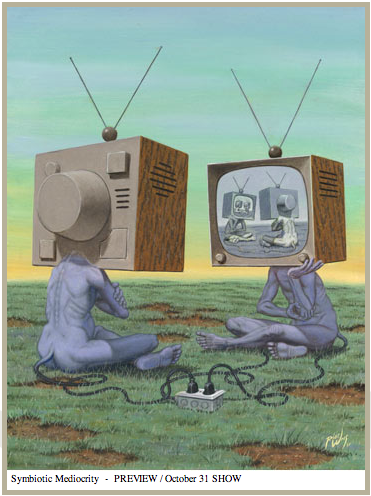According to Turkle, the idea of the self is constructed and reconstructed. This to me sounds much like the panopticon of Foucault. In this way, our identity must be influenced by our relationship with social media.
Though her work is dated, it seems that many current researchers are always referencing back to her works. While she notes that internet use (or what she called back then – playing in the MUDS) can be cathartic and provide personal and interpersonal insight, I wonder how that plays into the construction of my online, and ultimately offline identity. Through ‘mudding’, it seems that “’you are who you pretend to be’” (147) by a process of a “projection of inner fantasies” (148). Perhaps people are drawn to social media and information communication technology as they can hide behind a screen while working out the personal, as opposed to the possibilities of dealing face-to-face.
Additionally, Turkle posits that while “…role-playing games enable people to work through issues of identity” (145), boundaries get blurred between what is real and what is online. But what strikes me is the whole notion of “you are who you pretend to be”…the key word being pretend. As I make sense of social media and the authenticity of the performance of identity, need I say more about pretend?! Wait a second, is this some kind of euphemism for “Fake it til you make it”?! I’ll admit, in certain circumstances, like the first day of a new job, I most certainly fake the best of myself to make it seem to my employer and co-workers that I know how to work the photocopier, but that doesn’t speak volumes of the authenticity of my identity….does it?
In relating to notions of gender, Turkle explains how construction of gender is more heightened and aware as well as enforced through ‘mudding’. Through the ability to don avatars, people are allowed the opportunity to pretend to be someone else they’re not, such as a female when in real life they are male. Through this act, mudding allows for reflection and catharsis, and allows for people to work through these issues and realize them…but is this successful? Or are we further perpetuating stereotypes? If I pretend to portray myself as a rocker from a metal band online, how do I act – like Gene Simmons? Is that portrayal not a stereotype, or an authentic and accurate representation of all rockers from metal bands?

